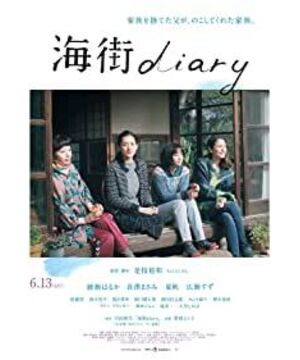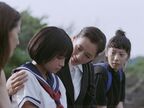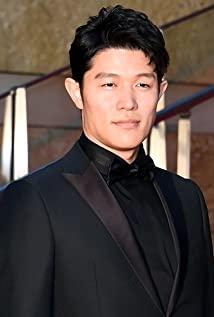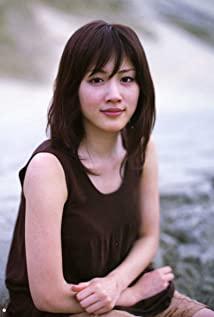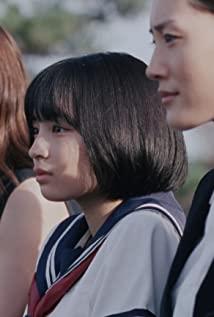At the 71st Cannes Film Festival, "The Thief's Family" won the Palme d'Or for Best Picture. The director was Hirokazu Kore -eda , who once again proved his status as one of the best writers and directors in the world.
However, when it comes to the first impression of Hirokazu Koreeda, "Haijie Diary" is always inseparable. The plum tree 55 years ago, the set meal house, the fireworks display, and the Shinkansen built along the coast... everything is "Hirokazu-eda".
It happened that there was a film festival by Hirokazu-eda in Shenzhen in early August, so I revisited it again. (The opportunity is really rare!)
The minutiae add up to life
The story takes place in Kamakura, the ancient capital of the sea in Japan. Because of his father's derailment, his mother left home sadly, leaving three sisters and grandmother to depend on each other in the old house. After the death of her grandmother, the eldest sister, Kada Yukio (played by Ayase Haruka) , took on the responsibility of taking care of her younger sisters like a mother.
The second sister Nai Jia (played by Nagasawa Masami) has a more frizzy personality, loves wine and men all her life, and has a kind and simple heart.
The third sister, Qianjia (played by Xia Fan) , is lively and lovely, and she always calms down when her sisters quarrel.
At their father's funeral, the three sisters saw their half-sister Rei Asano (played by Hirose Sisi) struggle to get a foothold with their stepmother Yoko, so they decided to invite her to live together in the old house.
It doesn't matter how ups and downs the plot of the movie is, the daily life of the four sisters is very much like our day-to-day, mediocre life. But under the lens of Hirokazu Kore-eda, all the ordinary things are shining, and every frame is beautiful and gentle.
▼ Set off fireworks
▼ eat and drink
▼ cut hair
It is Hirokazu-eda's works that always give people a feeling of "healing" . But the strange thing is, why has this director, who started making movies in the bubble economy era, kept a considerable distance from the "time" and paid more attention to the family trivia and joys and sorrows in the film?
He later gave the answer: "In filming I decided not to consider broad concepts such as 'Japan' or 'society'. For the characters in the film, I only focus on the things they can use to project their feelings, like pajamas, Tiles, toothbrushes, and butterflies. I want each shot to take hours of careful shooting." In his view, "The little things add up to life, and that's where the drama is. A scene depends only on details.”
traces of the passage of time
In Hirokazu-eda's films, we can always feel the traces of the passage of time.
Such as the change of seasons. Cherry blossoms in spring, plums in summer, yellow leaves in late autumn, and snow in winter. The change of scenery and the change of seasons are the time axis in Hirokazu Kore-eda's lens.
Another example is three meals a day. Breakfast may be solved at the sea cat cafeteria on the corner, lunch may be kamaboko curry made by Chika, and dinner may be fried food and soba noodles made by Yu... The fireworks of life are revealed in the passage of time.
Like those special foods. The plums were planted when my mother was born in 1955, and the wine was brewed by my grandmother 10 years ago... These figures are not just to prove the special and rare nature of plum wine. The plum tree is slowly getting old and can no longer bear so many fruits; grandma is getting weaker and weaker, and gradually "old" into a picture on the wall... This is the importance of time to Hirokazu-eda.
Living things take effort
If you have seen a series of films by Hirokazu Ededa, you will find that this is a director who likes to talk about "death" very much.
From "Phantom Light" to "Never Stop Walking", from "Deeper Than the Sea" to "The Third Suspect", and then to "Haijie Diary" with three funerals, it can be said that death is the result of Hirokazu Koreeda in many Motifs in the movie.
Why shoot death and time?
"Life is as splendid as summer flowers, and death is as quiet and beautiful as autumn leaves" is a unique Japanese view of life and death. I think, on the one hand, the director wanted to express his view that "the world will eventually change, and people will eventually grow old" ;
On the other hand, it was Hirokazu-eda who wanted to shoot growth , or some kind of reconciliation after growth.
The eldest sister was fortunate to "adopt" Xiao Ling to take revenge on her mother, and her mother left her father because of her deep hatred for her extramarital affair. Because of the funeral, mother and daughter have the opportunity to meet each other, and also have the opportunity to briefly enter each other's lives, slowly untie the painful knot in their hearts, and finally understand each other.
The movie begins with a funeral and ends at a funeral, but it doesn't feel too much sadness, but it is indifferent and described quietly, and the details related to sadness are removed as much as possible.
At the funeral of Niang Gong Er, the owner of the Seagull Cafeteria, her lover said that before her death, the two felt very happy walking on the Cherry Blossom Avenue. "If you still have the ability to feel good when you say goodbye to this world, that's a good thing."
"Living is already very hard work", instead of complaining about the unsatisfactory life, it is better to try to feel the good.
"What kind of movie do you think is a good movie?"
"I think a good movie is a movie that will be unforgettable for a long time after watching it, and will really change your life a little bit."
This is Hirokazu Kore-eda's answer to the audience at the festival.
Although he also once said that he never thought of using movies to heal anyone. But the real life experiences, thoughts and perceptions in his lens can make us unconsciously full of power. If you are in a low mood, I hope this film can bring you a little change for the better.
View more about Our Little Sister reviews


